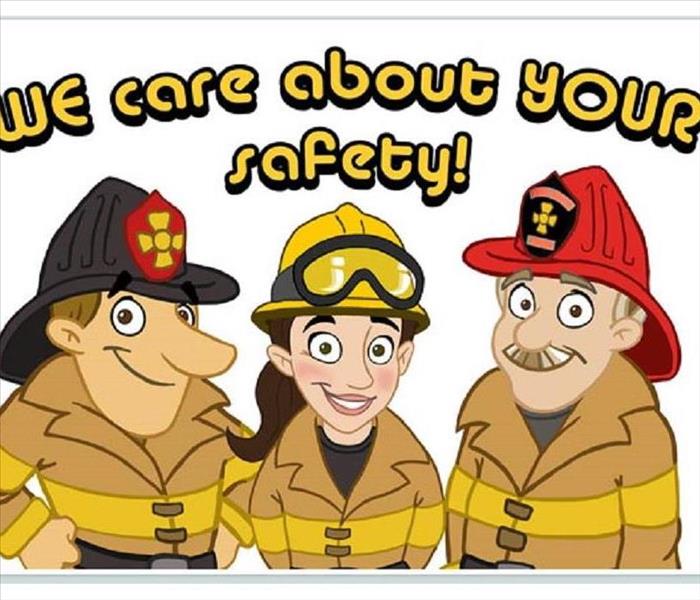Home Fire Safety Tips for Winter
1/18/2017 (Permalink)
Did you know that home fires occur more often in the winter than during any other season? Make sure you take the necessary safety precautions. Here are some fire safety tips to follow:
Furnace
• Keep trash and other combustibles away from the furnace.
• Hire a professional to inspect and maintain your furnace . Inspections ensure that all furnace controls and functions are in good working order.
• If your furnace breaks leave repairs to a knowledgeable professional.
Fireplace
• Have the chimney inspected and cleaned once a year. The best time to do this is in the fall before the snow and cold weather hits.
• Close the glass doors or set a mesh metal screen in front of a lit fireplace to prevent embers from jumping out and unwanted materials from falling in.
• Keep blankets, clothing and other combustible materials away from the fireplace.
• Build a small fire and add logs as necessary to keep the fire going. Avoid using excess amounts of paper when starting a fire.
• Never burn charcoal in the fireplace since this gives off high amounts of carbon monoxide.
• Put out the fire before you go to sleep.
• Never close the fireplace damper with hot ashes in the fireplace. Once the ashes cool, store them outside in a tightly sealed metal container at least 10 feet from the house.
Portable Space Heater
• Plug space heaters directly into the wall; avoid using extension cords if possible. Also, plug only one space heater into an outlet at a time. Plugging two in together could overload the circuit.
• Keep space heaters at least three feet away from anything combustible, including bedding, clothing and drapes.
• Check power cords occasionally for fraying or breakage. Never operate a space heater with a damaged cord.
• Turn off the space heater when you leave home or go to sleep. Never leave it running unattended.
• Never hang gloves, socks or other items over a space heater to dry.
• Never run a space heater in the bathroom or other damp area where it could come in contact with water.
Stove and Oven
• Keep an ABC fire extinguisher under the kitchen sink. ABC stands for “ash”, “barrel”, and “current”. An ABC fire extinguisher is capable of handling trash, wood and paper fires (ash); cooking oil, gasoline, and other flammable liquid fires (barrel); and electrical equipment fires (current).
• If a fire extinguisher isn’t available, put out stovetop grease fires with liberal amounts of salt and baking soda, not water.
• Never leave the oven or stove on as supplementary heat for your home.
• Don’t cook if you are sleepy or have been drinking alcohol.
• Never leave the kitchen while frying, grilling, boiling or broiling.
• Set a timer to remind you when food is done cooking.
• Keep anything that could catch fire away from the stove top.
Candles
• Burn candles in sturdy holders and set them on a stable surface.
• Keep candles one foot away from anything that could catch fire.
• Blow out candles when you go to sleep or leave home. Avoid burning candles in the bedroom where you could fall asleep with them still lit.
• Never leave a child unattended with a burning candle.
• Store matches and lighters out of reach of children.
Smoke Alarm
• Install a smoke alarm on every floor of your home, including inside bedrooms and outside each sleeping area.
• Change the batteries in the smoke alarm once a year. It's helpful to set a schedule to do this at the same time annually, for example when the clocks change for daylight savings time.
• Test smoke alarms monthly. Simply press the “test” button and wait for the alarm to sound. If the alarm doesn’t go off, change the batteries and try again. If the alarm still doesn’t work, replace it as soon as possible.






 24/7 Emergency Service
24/7 Emergency Service